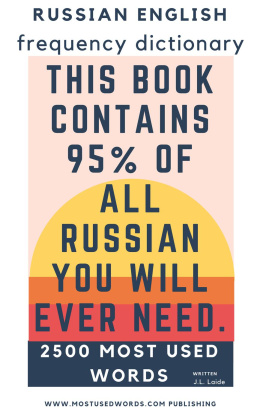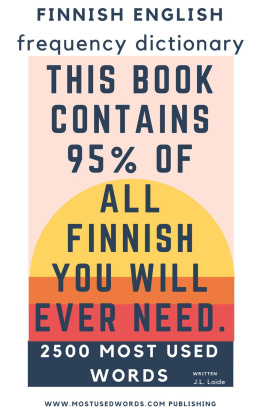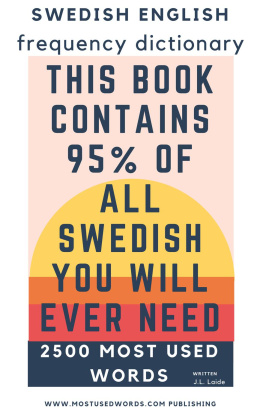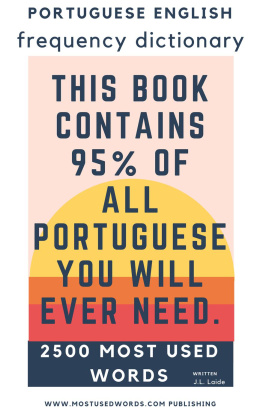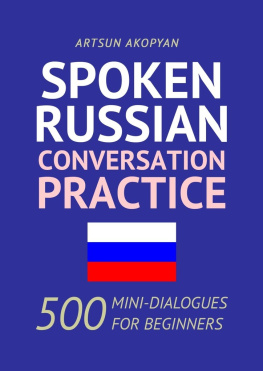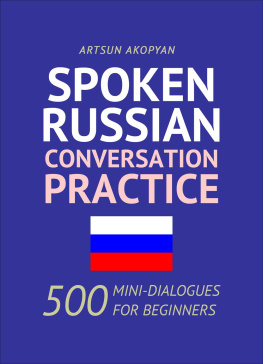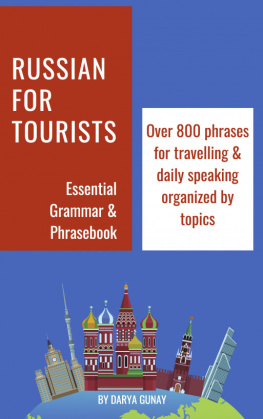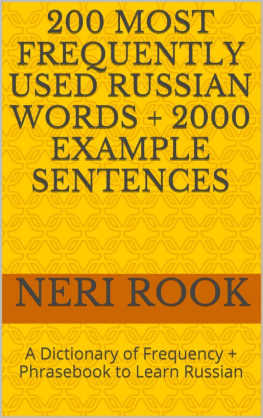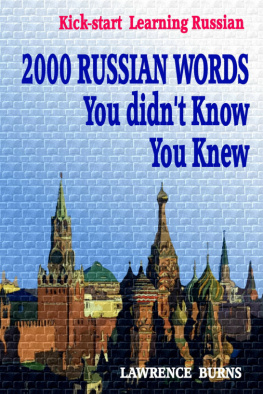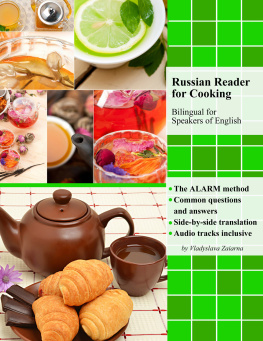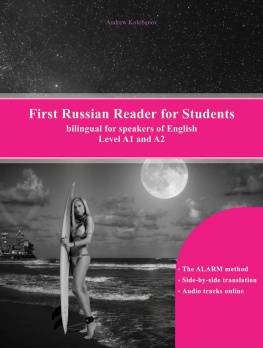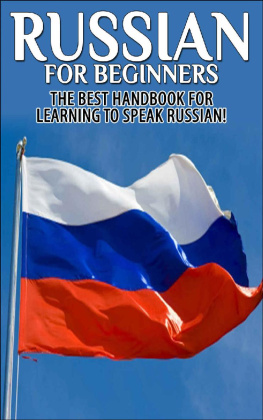J.L. Laide - Russian English Frequency Dictionary--2.500 Most Used Words
Here you can read online J.L. Laide - Russian English Frequency Dictionary--2.500 Most Used Words full text of the book (entire story) in english for free. Download pdf and epub, get meaning, cover and reviews about this ebook. year: 2016, publisher: MostUsedWords.com, genre: Children. Description of the work, (preface) as well as reviews are available. Best literature library LitArk.com created for fans of good reading and offers a wide selection of genres:
Romance novel
Science fiction
Adventure
Detective
Science
History
Home and family
Prose
Art
Politics
Computer
Non-fiction
Religion
Business
Children
Humor
Choose a favorite category and find really read worthwhile books. Enjoy immersion in the world of imagination, feel the emotions of the characters or learn something new for yourself, make an fascinating discovery.
Russian English Frequency Dictionary--2.500 Most Used Words: summary, description and annotation
We offer to read an annotation, description, summary or preface (depends on what the author of the book "Russian English Frequency Dictionary--2.500 Most Used Words" wrote himself). If you haven't found the necessary information about the book — write in the comments, we will try to find it.
This frequency dictionary contains 95% of all daily spoken Russian and 85% of all daily written Russian texts.
Essential Modern Russian Vocabulary for Students and Learners With the Essentials of Russian Grammar!
The fastest way to acquire a base vocabulary for practical spoken and written Russian!
2nd Edition Updates
Added 2500 Russian to English example sentences to show you word usage.
Added Romanization (Russian words spelled in the english alphabet) and International Phonetic Alphabet entries to help you with pronunciation.
Scientific research has shown that in day to day speech, you only use about 1.000 words a day.
The 1000 most common words in Russian account for 90% of all daily conversational Russian. The 2.500 most used words account for 85% of all daily written Rusian texts.
The Essential Russian- English Word Frequency Dictionary 2.500 words and verbs give you a list of the most useful words to build your Russian vocabulary fast.
This electronic mini dictionary is a invaluable tool if you want to teach yourself Russian.
This Russian frequency dictionary is perfect for beginners and intermediate students of teenage or adult age. Learning from a Russian vocabulary list is a great way to learn Russian fast.
Contains Cyrillic script, Roman script and the International Phonetic Alphabet to help you with pronunciation.
Contains all the Essential Russian Grammar for quick studying.
Words ordered on frequency of usage & alphabetical order.
Words sorted by Part of Speech (nouns, adjectives, verbs, etc.)
More fun facts on language learning and vocabulary:
The first 25 words are used in 33% of all everyday writing
The top 100 words make up 50% of all student and adult writing
Top 500 words make up around 70% of all everyday text.
It has been advised to first learn the first 1000 most common words before you start speaking a new language. The facts aforementioned seem to confirm this.
With these words, you are able to cover 85% of the Russian language in text (enough to discover the meaning of unknown words through context), and 95% of all of the in day-to-day spoken situations.
It is therefore a rational move to prioritize learning the words and verbs that you are likely to use and hear the most often.
Frequency dictionaries and word lists are a good starting point, and can produce the quickest results.
The most common Russian words & verbs list will give you a good grasp on the Russian language in a short amount of time.
The word frequency is based on analysis of Russian subtitles. Scientific research has shown that subtitles are the best source of a practical, spoken and written frequency dictionary in any language.
Invest in this book now and amaze yourself and your friends on family how quick you'll be fluent in Russian.
J.L. Laide: author's other books
Who wrote Russian English Frequency Dictionary--2.500 Most Used Words? Find out the surname, the name of the author of the book and a list of all author's works by series.

